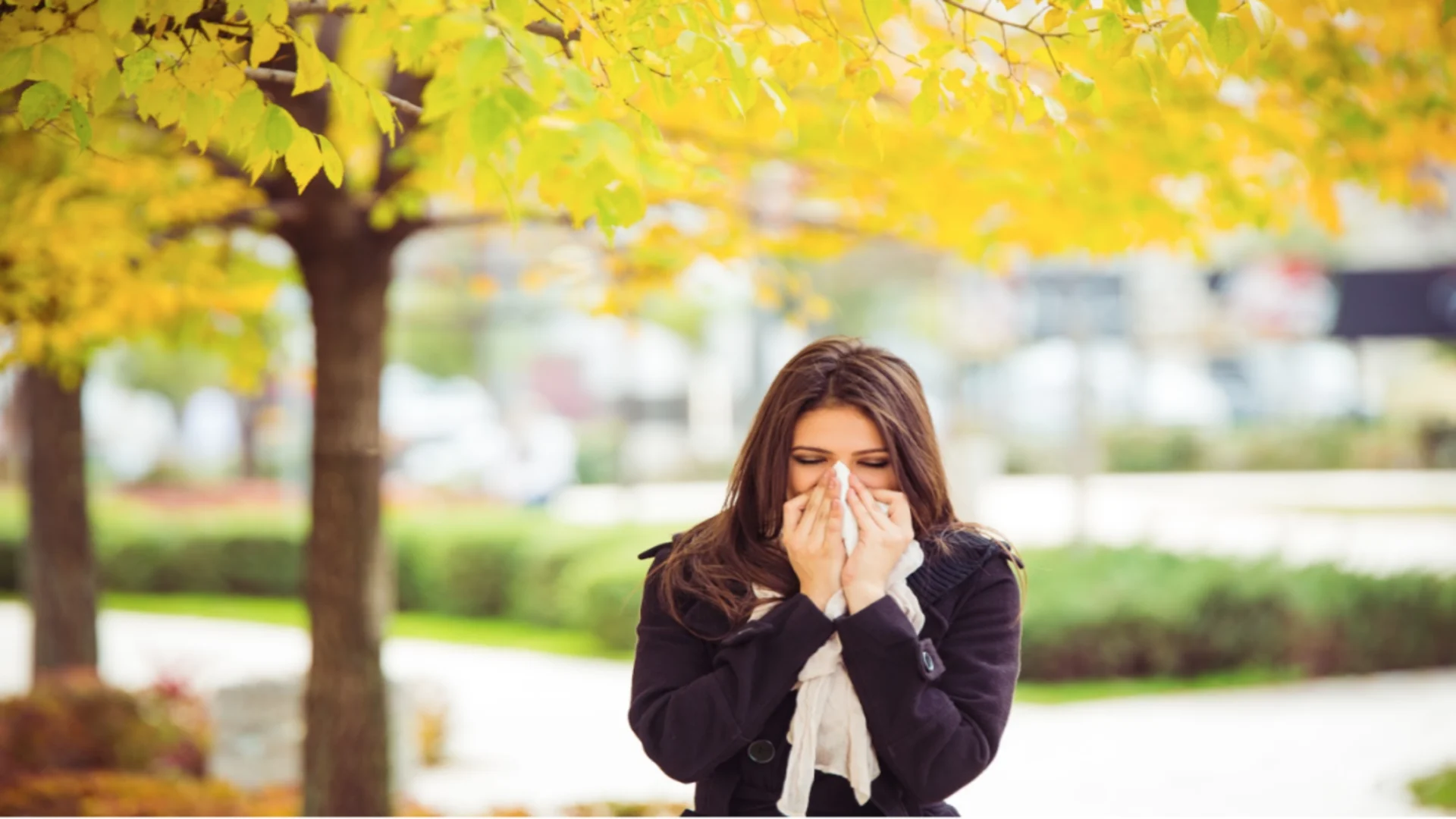
Answering the Internet’s Top 5 Allergy Questions
The itchy, watery eyes, constant sniffling and sneezing, and, oh, those tortured sinuses. And it just seems to get a whole lot worse at night.
Don’t get down – get informed. Whether you’re allergic to dust mites, tree pollen or animal dander, you can find relief from your allergy suffering with some expert advice.
So we asked some allergists to answer your most common allergy questions:
Do I have an allergy, and how did I get it?
If you have an itchy runny nose/eyes, itchy ears/palate, nasal congestion, sneezing, and coughing, and notice these symptoms in specific situations, then you might have an allergy.
Seasonal allergies are triggered by a pollen, says Dr. Mark Kuprowski, who specializes in internal medicine and clinical immunology and allergy and is an assistant professor at Western University. Your mast cells get activated by the pollen and release many different chemicals. One of the major ones, histamine, causes symptoms of allergy.
“So, if you have symptoms consistent with allergies and the pollen counts are high, then you likely have an allergy,” he says.
No one fully understands why some people get allergies and others don’t, Kuprowski adds. “Genetics play a big role. There is also the hygiene hypothesis - this is where people in the developed world are more prone to allergy because their body was not exposed to infections at a young age. This makes them more prone to develop allergies.”
How can I tell if it is an allergy or a cold?
The common cold tends to present with symptoms you don’t see with allergies, including a sore throat, feeling generally unwell, and coughing is much more prominent, says Dr. Anne Ellis, a Kingston-based allergist. Also when it comes to a cold, the symptoms tend to go away sooner.
On the other hand, “allergic rhinitis, or hay fever, has symptoms you don’t see with a cold, such as nasal itching and itchy, watery eyes, and the symptoms will recur every year at the same time, lasting usually about four weeks to mirror the duration of the pollen season,” says Ellis, a professor in the Department of Medicine at Queen’s University and Director of the Allergy Research Unit at the Kingston Health Sciences Centre, at the Kingston General Hospital site.
A cold and allergy look similar but the biggest difference is itchiness, adds Kuprowski. Also allergy symptoms should show some improvement with allergy medication such as antihistamines.

Courtesy: Getty Images
Why are some allergies seasonal, and worse at night?
Pollen allergies tend to be seasonal, and allergy symptoms generally worsen when the pollen you are allergic to is present in high amounts, says Dr. Samira Jeimy, Assistant Professor and Program Director of Clinical Immunology and Allergy at Western University.
In the spring, allergies tend to correspond to tree pollen allergy, summer to grass pollen allergy, and fall to ragweed allergy. Year round allergens include dust mites, mold, and pets. “You can be allergic to a seasonal allergen, a year round allergen, or both,” says Jeimy.
Allergies often worsen at night because “our flight or fight hormones tend to diminish at night, as we prepare for rest - the same hormones might keep allergy and asthma symptoms more quiet during the day,” she says.
In addition, you might be exposed to more allergens at night, says Jeimy, including lots of pet dander and dust mites in pillows, mattresses, and linens.
Allergy expert Dr. Mark Kuprowski adds that not only are you battling the pollen that you brought in from outside, but there’s also “convective heat transfer” to deal with at night. “Essentially, the warm air during the day that has the pollen in it gets pushed up in the atmosphere. When day turns to night, and the air becomes cooler, the pollen then descends and results in increased pollen counts.”
What am I allergic to? Can I be tested?
History can give you clues on what you are allergic to: If you have symptoms in the spring, then you may be allergic to trees or grass. If you have symptoms in the late summer, then it may be ragweed. If you have symptoms all year round, then you can have a dust mite, cat or dog allergy, says Kuprowski.
To be tested, you should see an allergist and get skin-prick testing, he advises. Your family physician or nurse practitioner can refer you to an allergist for testing to find out what you are allergic to.
What can I use as my treatment? Are there any side effects?
Once you zero in on your allergy triggers, avoiding them or at least reducing your exposure to them, is the first step in keeping allergies under control. Along with avoidance strategy counselling, “medications can be used, including nasal steroids and antihistamines. We do not use first generation antihistamines anymore because of side effects,” says Jeimy.
“Compared to newer (aka second-generation) antihistamines, the first generation ones – diphenhydramine, chlorpheniramine, hydroxyzine, or doxepin – have many side effects, some of which are downright dangerous, like fatalities from vehicle accidents,” she says.
There are lots of effective, safe treatments for allergies, says Ellis. Her first line of treatment is the newer, non-sedating antihistamines, and there are also very effective prescription non-sedating antihistamines that your primary care provider can prescribe if you have a private drug plan.
If medications are not controlling your symptoms, you may need an allergist to treat you with immunotherapy, adds Ellis.
Original notes from the interview with allergists are available upon request.
This article is based on an interview conducted by The Weather Network with Dr. Mark Kuprowski, who specializes in Internal Medicine and Clinical Immunology and Allergy, and is an Assistant Professor at Western University.
This article is based on an interview conducted by The Weather Network with Dr. Anne Ellis, Professor in the Department of Medicine at Queen’s University. She has served as the Chair of the Division of Allergy & Immunology since May 2010, and is the Director of the Allergy Research Unit at the Kingston Health Sciences Centre, at the Kingston General Hospital site.
This article is based on an interview conducted by The Weather Network with Dr. Samira Jeimy, Assistant Professor and Program Director of Clinical Immunology and Allergy at Western University.









